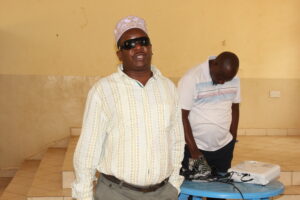Muslim Women Advancement Rights and Protection (MWARP), a non-governmental organization, in partnership with the Kwale County Government, has launched a training program aimed at equipping grassroots project management committees (PMCs) with essential skills for effective development oversight.
The initiative seeks to enhance transparency, accountability, and efficiency in project implementation at the community level.
The training will focus on project planning, financial management, monitoring, and ensuring quality standards in infrastructure development.
It targets local community leaders comprising youth, women and PWD leaders and other stakeholders involved in various development projects to strengthen their capacity in project monitoring.
Speaking during the launch, MWARP Coordinator Mwalimu Ali said the program seeks to empower communities to take charge of local development initiatives.

“The program seeks to empower communities to ensure effective implementation of projects and that they are of good standards,” he said.
Ali pointed out that lack of technical knowledge among committee members often leads to poor project outcomes.
He said in many cases various contractors have done shoddy work simply because the selected PMCs have no idea of construction work.
Ali said that training would enable committee members to assess project quality, hold contractors accountable, and demand better service delivery.
“When grassroots committees are well-trained, they become more accountable and efficient in delivering services that directly impact their communities,” she said.
He further said that participants will learn about procurement procedures and the importance of citizen participation in development.
Additionally, Ali said the beneficiaries will be trained in conflict resolution and stakeholder engagement to enhance collaboration in project execution.
He said that the program would strengthen the connection between the government and local communities, fostering transparency and ensuring that development projects align with the real needs and priorities of the people.
One of the beneficiaries, Binti Juma lauded the partnership, stating that it aligns with the county’s vision of fostering community-driven development.
She said that the training would empower them to effectively advocate for their community’s needs.

“This program will enable us to monitor projects, ensure funds are utilized properly, and that all work meets the required standards,” she said.
Juma admitted that she previously had little knowledge about construction work but noted that the training had equipped her with valuable skills to drive positive change in her community.
She added that, in the past, community members rarely questioned substandard projects, assuming that oversight was solely the county government’s responsibility.
Juma said that, in the past, the community was unaware of its responsibility in ensuring quality development projects and safeguarding public infrastructure.
However, with the training, they now understand their critical role in project oversight.
On his part, Mwashame Mwakuzimu described the initiative as a new dawn for the community, as they have gained valuable knowledge about managing and monitoring local projects.
He noted that many PMCs previously lacked the capacity to oversee development initiatives effectively, despite being entrusted with the responsibility.
Mwakuzimu said the training will enable them to fulfill their roles with confidence and ensure that projects are implemented properly.
Peg Wamalwa said that the training would help PMCs regain the trust of local communities by ensuring the successful implementation of quality projects.
He noted that, in the past, a lack of knowledge in project management often led to misunderstandings, with communities blaming PMCs for poor project outcomes.
“Now that we have the necessary skills, we can oversee projects more effectively and ensure they meet the required standards,” he said.


